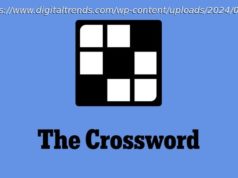Electronic Arts has an authenticity problem, and, in my opinion, it stems from how it talks to us about its games. Star Wars: Battlefront II’s launch was a calamity, and I think EA made it worse with how it communicated to angry fans. Maybe it’s corporate policy or culture (or some other issue), but most of EA’s communications to fans come in the form of a sales pitch. Even when
Electronic Arts has an authenticity problem, and, in my opinion, it stems from how it talks to us about its games. Star Wars: Battlefront II’s launch was a calamity, and I think EA made it worse with how it communicated to angry fans. Maybe it’s corporate policy or culture (or some other issue), but most of EA’s communications to fans come in the form of a sales pitch. Even when the company attempts to address player concerns or apologize, it comes across like you’re talking to Lionel Hutz.
I get that publishers are afraid of saying too much. Gamers are loud and remember everything, and they will take whatever a company says as a promise. That requires a difficult balance of saying enough to get people excited without giving away too much. Like Alec Baldwin in Glengarry Glen Ross, you can describe EA’s strategy as “Always Be Closing.” That’s understandable, because it has a product to sell. But that type of communication can often make things worse — especially in a crisis. If people are mad because you covered them in mud, you will only make them angrier if you try to tell them you’re actually serving them chocolate cake.
EA has made a number of unforced errors when it comes to talking about its games — especially Star Wars: Battlefront II. I’ve picked three moments to illustrate how EA’s recent public-relations style is ill-equipped to handle angry fans during a crisis or before frustration turns into something bigger. Of course, EA started in 1982, so that style has changed a lot over time. And even in its modern form, the company is willing to let some of its development partners speak frankly on the record. But I still think the publisher’s policies made the Battlefront II crisis worse.
I reached out to EA to see if it would like to comment on how its communications with fans is changing in the wake of Star Wars: Battlefront II. It did not provide a response to my request.
My first example comes from a recent interview I did with Star Wars: Battlefront II director Mark Thompson. I had only played the first three levels of the campaign as part of the trial at this point, and I asked about how the game was establishing its own identity. The director explained that the studio was focusing on showing Iden Versio, the main character, as an agent of the Empire. But he said you would also get the chance to play as famous Star Wars heroes as well.
“And in the campaign we do have chapters where you get to play as the iconic movie characters, because that’s a big part of the Battlefront multiplayer experience, being able to play as heroes or villains in Galactic Assault,” said Thompson. “So we wanted to do the same thing in campaign. In those chapters, we take that familiar perspective, that iconic character, and we put them in a new event in a place you haven’t seen them before, doing something that hasn’t been previously accounted for in the existing Star Wars timeline.”
This isn’t some egregious lie, but it also doesn’t feel accurate now that I’ve played all the way through the campaign. These hero missions are fan-service tourism. And there’s nothing wrong with fan-service tourism! So why doesn’t EA just own that? Because it compels itself to frame everything it does as an amazing feature that gamers have never seen before. It can’t say, “We know people love Luke and Lando, and we wanted to give them that because it’s a bad idea to release a broad Star Wars game without those characters.” But because everyone at EA is always selling, Thompson sold it to me as some amazing new addition to the Star Wars mythos.
My interview was a minor moment that wouldn’t have caused me a second thought if EA’s compulsion to spin its business decisions as wonderful additions for gamers hadn’t caught the attention of Reddit. But that’s the second example.
Earlier this month, EA was facing down angry fans about Battlefront II’s loot boxes and progressions system. One thread went viral because a player claimed it took $80 to unlock Darth Vader after purchasing the game for $60. A lot of people disliked that the option to unlock Vader with in-game currency would take dozens of hours, and you only earn currency based on time played and not skill or performance. Readers took this as a system that encouraged players to spend some extra money to get the characters and upgrades that they want. This got EA to respond directly… and that comment is now the most downvoted post in the history of Reddit.
“The intent is to provide players with a sense of pride and accomplishment for unlocking different heroes,” the EACommunityTeam account wrote. “As for cost, we selected initial values based upon data from the Open Beta and other adjustments made to milestone rewards before launch. Among other things, we’re looking at average per-player credit earn rates on a daily basis, and we’ll be making constant adjustments to ensure that players have challenges that are compelling, rewarding, and of course attainable via gameplay.”
You can see the problem, right? EA made a business decision. It wanted to generate more money from Battlefront II by selling faster access to Darth Vader, but for EA, admitting that was never an option. Instead, it went right back into “sell, sell, sell” mode. This was all about the players and their pride and their sense of accomplishment! EA is just worried about you.
The gaming audience is savvy, and they are not going to respond well to obvious corporate spin. In fact, they might respond by giving a comment like that 674,000 downvotes before the moderators close the thread. No one likes an aggressive salesman who never stops trying to get you to spend money.
My final example of EA’s mouth causing a problem for itself is when the company cut the cost of unlocking heroes following the Reddit outrage. In a blog post, DICE executive producer John Wasilczyk explained that his team was going to reduce the amount of credits it would take to unlock Darth Vader, Luke Skywalker, and other heroes by 75 percent. This didn’t satisfy a lot of people, but at least EA was taking action to handle its PR disaster. Except the publisher was also creating a new problem. It turns out that when it cut the cost of the heroes, it also cut the reward you get for finishing the single-player campaign from 20,000 credits to 5,000 credits … or by 75 percent.
Players found out about EA making that corresponding cut, and it was another reason to distrust and the company and to treat it as an enemy attempting to pull one over on consumers.
EA should have just admitted at the time that it was going to cut the single-player reward. It could have said that this was always meant as a way to encourage players to get into multiplayer. You have enough credits now to unlock Iden Versio or you have a decent headstart on unlocking Luke or someone else. Now, go and play online and earn some more credits.
But again, it seems to me that transparency was never even an option for Electronic Arts. It couldn’t tell players about cutting the single-player reward because that would look bad and it would mean it wasn’t selling the game and its features.
To me, it’s almost every sentence from EA feels transactional. It is promising to do something or make something with the purpose of getting you to spend money in return. And I think that is adequate as its default messaging voice, but it has to learn a few phrases from the languages of responsibility and relationship building.
“That’s accurate,” Wharton School at the University of Pennsylvania marketing professor Jonah Berger wrote in a note to GamesBeat when I explained EA’s Star Wars: Battlefront II situation to him.
What’s especially frustrating about EA is that it should know better. This is PR 101.
“The biggest problem with company ‘apologies’ is that they’re aren’t apologies at all,” said Berger.
Home
United States
USA — software Star Wars: Battlefront II should teach publishers to drop the sales pitch






